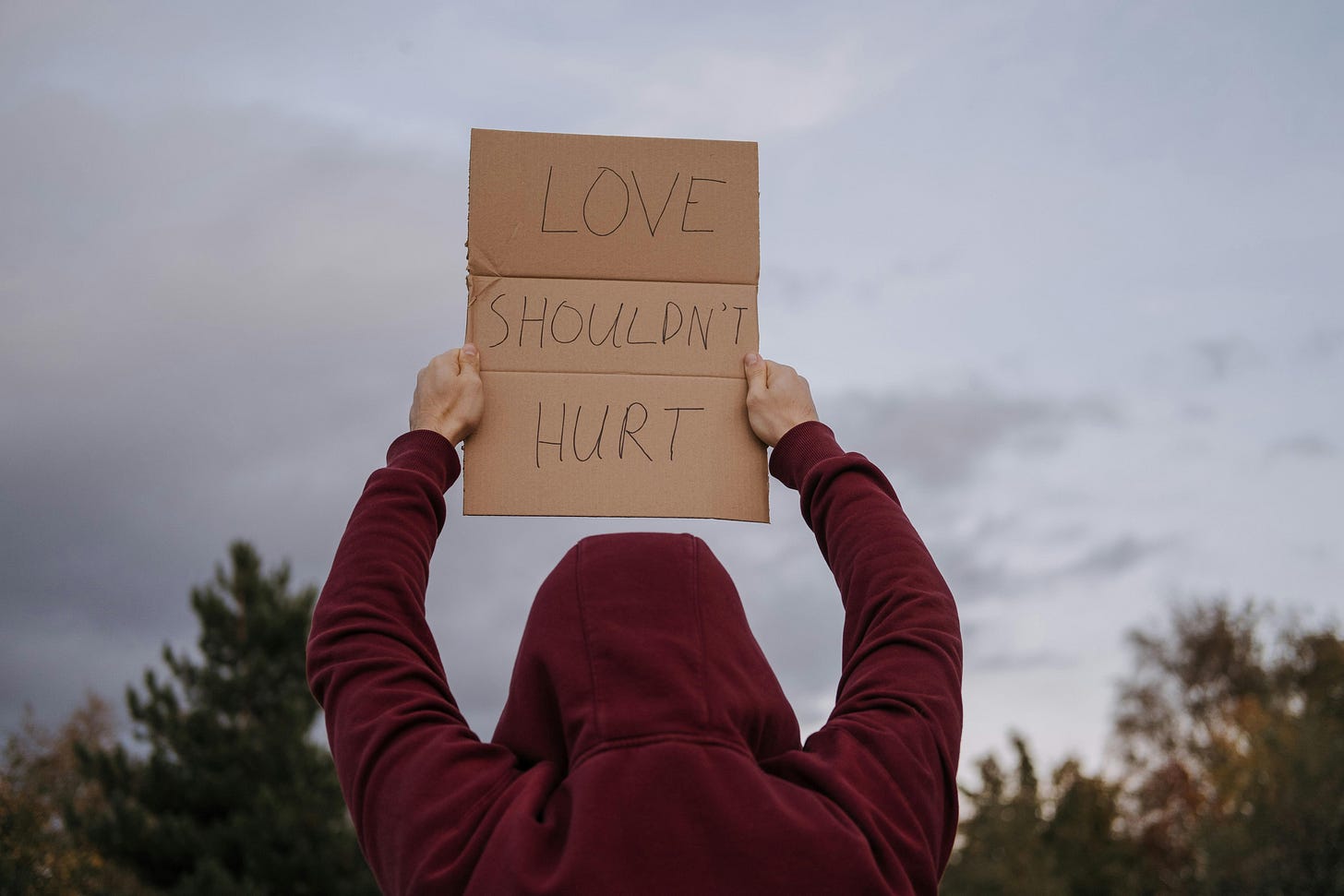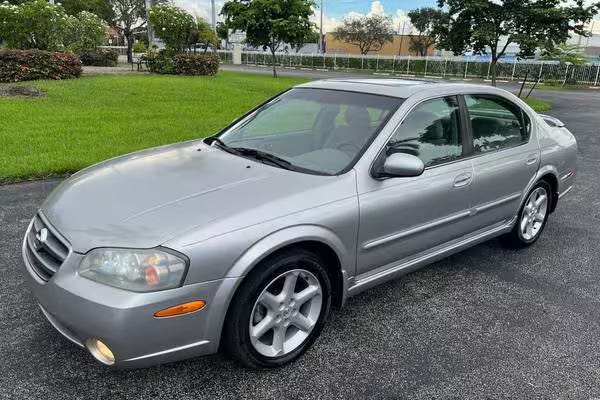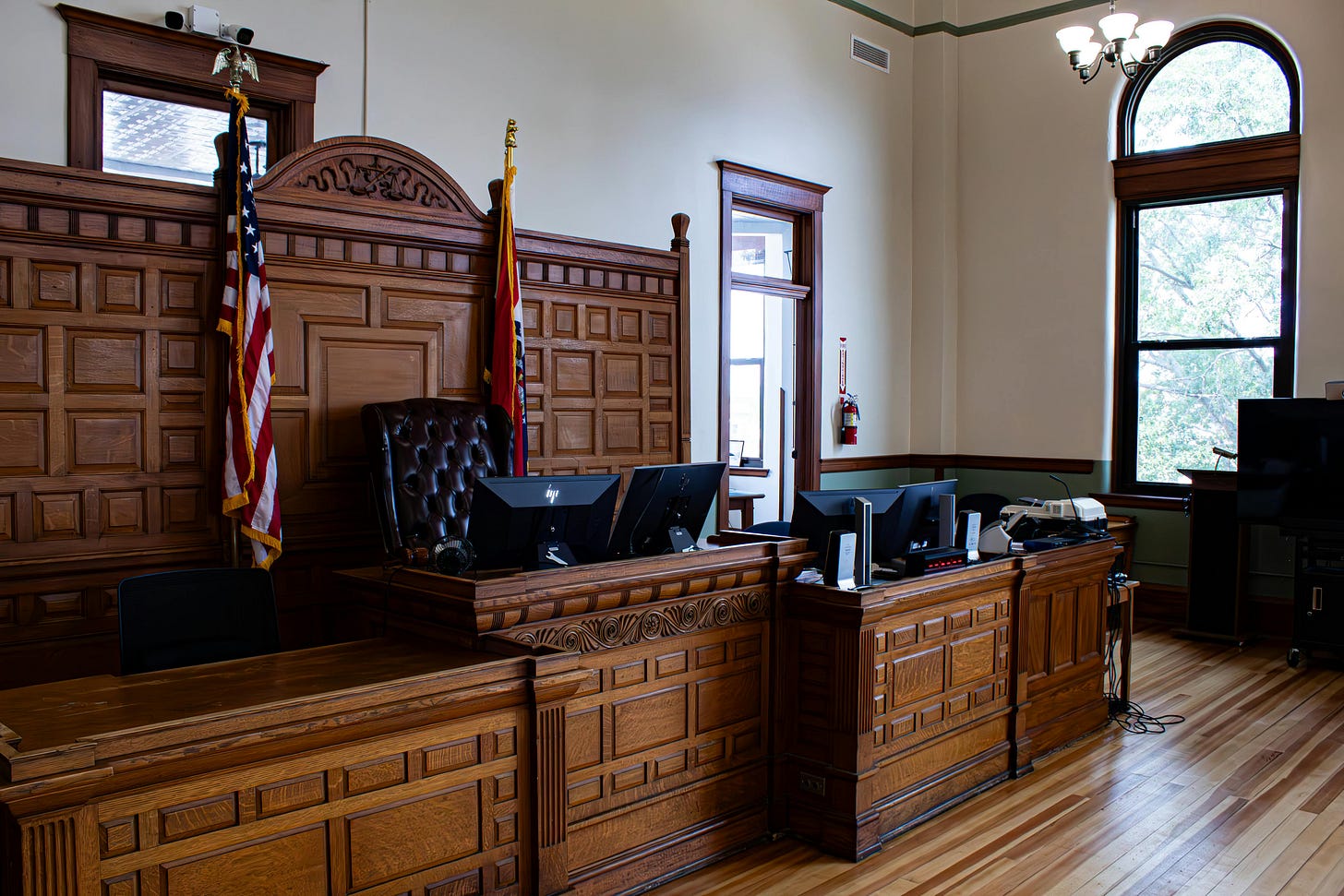1998
The year everything changed. A true story of love, violence, and survival... shared in honor of Domestic Violence Awareness Month. (Part 1 of 3: When Love Moved In)
This story is being shared in honor of Domestic Violence Awareness Month.
It contains real, vivid experiences of emotional, physical, and psychological abuse.
Some scenes may be difficult to read.
But they are true.
And they matter.
If you or someone you know is in an unsafe relationship, please scroll to the bottom of this post for help.
I was already living in Delaware when everything began to come apart. It was 1998. My townhouse sat in a quiet Newark development. Two bedrooms. Beige siding. Trimmed bushes out front. The kind of place where neighbors said good morning and left flyers for community pool parties on your door.
To outsiders, I looked like I was doing well. A young woman on her own with a job, a car, and a future. But every weekend, I drove back to the Bronx. Co-op City was still home. My grandparents were still home.
Then one night, my grandmother called. My grandfather, the man who had bragged his whole life about never being sick, could not stand up off the floor.
The ambulance took him to Albert Einstein Hospital. The diagnosis came fast and brutal: bone cancer. Colon cancer. It was everywhere. There was nothing they could do.
I sat on the edge of my new mahogany bed that night, staring at the furniture my grandfather had bought me, touching it like I could bring him back through it. He had come to Delaware himself, dressed in his three-piece suit and Fedora hat. He walked my townhouse slowly, his eyes proud and quiet. I had shown him the catalog I planned to order from. A few cheap pieces to get by.
He looked at me and said, “You never get nothing cheap because it won’t last. Get something timeless.”
So we went to the Italian furniture store. He put it all on his credit card. A full bedroom set with a headboard, footboard, nightstands, and a dresser with an oval mirror. A full living room set with cherry wood tables. A dining room table with a leaf divider. A china cabinet that held gold-rimmed dishes my grandmother picked out. He even had two framed paintings delivered.
He wanted me to have something elegant. Something that would last.
He bought me a car too. A Nissan Maxima. I called it “the car my grandparents bought me.” It was more than a car. It was freedom. It was love on four wheels.
But that winter, driving back and forth to the Bronx every weekend, I watched him wither. The hospital smell, the machines, the tubes in his arms. His voice softer each visit. His eyes searching for me. I had always gone to him for advice. Now I was losing him.
Something inside me began to fray.
I was 21. Alone. Holding myself together with weekend visits and weekday silence. My family was scattered. And into that emptiness walked Kong.
He came through a friend. Older. Mid-thirties. Rough, but charming in a strange way. He had prison on him, but he talked smooth. He knew how to read a woman’s needs and echo them back to her like a mirror.
One day, he looked at me and said, “A woman’s not a woman unless she has a baby.”
And the way I was feeling, empty, alone, floating, that did not sound wrong. It sounded like purpose.
I introduced Kong to my grandfather at Albert Einstein. I told my grandfather I was pregnant. My grandfather looked at Kong, then at me. I saw the concern behind his smile. I was introducing him to a man almost twice my age.
He pulled me close, and his voice was faint but certain.
“I found the answer,” he said.
“The answer to everything in life is love.”
That was the last clear thing he ever said to me.
He passed away on February 27, 1998. My grandmother, his wife of nearly sixty years, moved in with my mother in Mount Vernon. And I was left alone in Delaware. Pregnant. Engaged.
Kong and I got married on April 4, 1998. It was supposed to be a new beginning. But June came, and Kong started getting sick. Bad headaches. Stiff neck. High fever. He refused to go to the hospital.
“I’m fine,” he said, sweating through his shirt, unable to sit up straight.
I stood over him and demanded he get in the car. I was not asking. I drove him to the ER myself.
They admitted him on the spot. Bacterial meningitis.
The doctor said if he had waited another day, he could have died.
I saved his life.
Looking back, the weight of that moment lands different. Not long after, he would try to take mine.
On August 3, his birthday, I went into labor. On August 4 at 8:41 p.m., I gave birth to our son.
He was beautiful. He was mine. But his skin was pale, almost white. Lighter than the biracial baby next door.
I am a brown-skinned woman.
Kong is so dark they called him “Black.”
And he looked at our child like a stranger.
He did not reach for him. He did not smile.
He just stared and said, “Why he look like that?”
He did not say the rest. He did not have to.
He did not believe the baby was his.
And then he started drinking.
At first, it was quiet. Just a few beers with the maintenance guy’s son. Then it was all the time. Every night. He came home smelling like it.
One night, he tried to hide it.
“You’re a grown man,” I said. “Why are you hiding it?”
I did not know then that he had a history.
An alcohol problem. Maybe more.
What I did know was that he was changing.
And then came the night of the slop.
We had been arguing. He said I thought I was better than him. That I was too good to eat what he cooked.
“You think you’re too good for my food?” he said.
“You too good for this?”
He shoved the plate at me. It looked like something from a prison tray.
Scrambled eggs with ketchup, cut-up hot dogs, rice, frozen mixed vegetables. All piled on top of each other, half-cooked, watery, steaming.
The smell was thick and sour. Grease, metal, vinegar, cheap meat.
“Just taste it,” he said.
“No.”
His jaw clenched. His teeth ground together like stone. He leaned in, his face tight. I could see the rage collecting behind his eyes. He wasn’t even blinking. His eyes were hard, flat, and burning through me.
“Eat it,” he said.
“I’m not eating that.”
“Eat it!”
And then he snapped.
He came around the table fast. His hand closed around my throat before I could even stand. He slammed me against the kitchen wall, holding me there, his fingers tightening.
Our baby started to cry.
We had been loud. Too loud for this quiet neighborhood. Somebody must have called.
Because that is when the knock came. Hard. Fast. Urgent.
Police.
But he did not let go.
From the window, they saw everything. His hand around my throat. Our baby screaming.
The door opened. I heard shouting. I could not make out the words.
Kong released me just long enough to snatch up our baby, holding him like a hostage. Like he was suddenly a father again.
It was strange. He had not been holding him before. He had not even wanted to.
“Put the child down,” the officer said.
I stood there, dazed, my throat bruised, air returning in short gasps. I did not move.
They pried my son from his arms. The cuffs went on.
They took him away.
And for a moment, I just stood there. Hands trembling. My throat aching. That plate of food still sitting on the table, cold now. The baby finally asleep. The silence suddenly louder than any fight.
The officers didn’t ask for my permission. They didn’t need me to press charges. They had seen enough through the window. The marks on my neck were enough. The crying baby in the background was enough.
They pressed charges themselves.
They did what I couldn’t do.
What I was too scared, too unsure, too loyal to do.
They treated it like the crime it was.
But the silence didn’t last. The phone rang. Then rang again. He called. Friends called. The apologies started. The charm returned. The promises came fast.
“I’ll get help.”
“I didn’t mean it.”
“I love you.”
I bailed him out.
He came home soft-spoken and clean-shaven. Watching movies with the baby in his lap. Making sure to be extra gentle.
So when the court date came, I convinced myself that things were not as bad as they seemed.
He was on his best behavior.
I was his wife.
The mother of his child.
How could I be the one to send him back to prison?
I hoped things would go back to the way they used to be. That he would be kind again. That he would be my friend again. That he would be the man I first met. Thoughtful. Gentle. Peaceful.
So I walked into that courtroom believing I was doing the right thing.
Believing he would change.
“I’m not in danger,” I told the judge.
“We were just fooling around. He did not harm me.”
The charges were dropped.
He came home.
I thought I had just protected him.
But in that courtroom, dropping the charges,
I had no idea what I had just set loose.
If You’re Reading This
This story is shared in honor of Domestic Violence Awareness Month.
If you are in a relationship where you are being hurt, threatened, or afraid, please know that you are not alone.
There is help. There is safety. There is a way out.
Call the National Domestic Violence Hotline: 1-800-799-SAFE (7233)
You do not have to wait. You do not have to hide.
You matter. Your safety matters. Your life matters.
Part 2 drops tomorrow.
What happened next will haunt me forever.







Thank you for your support, Bob. I'm so happy that part of my life is in my rearview.
I can't "like" this. Horrific. Incredible writing. Sorry for your pain, happy for who you are now.